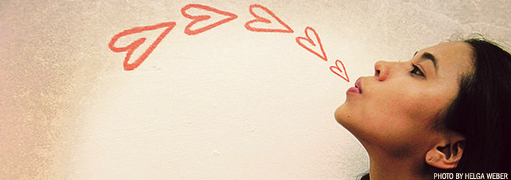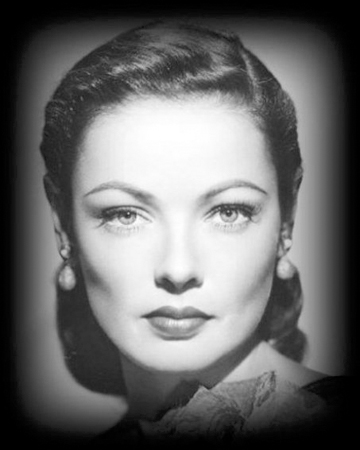My friend Joe* is head over heels for Marie. He’s loved her for at least four years. He would do anything for her. He went to visit her when she was homesick in Paris. He’s taken her out for countless thoughtful dates in the States. He’s bought her intimate and touching Christmas gifts. All of Joe’s friends know he’s in love with Marie, and we all talk about it, even with him. The thing is: Joe has never told Marie how he feels.Yes, Joe’s is a classic case of unrequited love—the saddest, most calamitous love of them all. And since the tragic aspects make for a great reading, we’re going in deep for Valentine’s Day. Courtly Love You probably know the story of King Arthur, his Lady Guinevere and the not-so-leal knight Lancelot. The story is actually one in a long line of narratives about courtly love. (Apologies to all the medieval studies majors out there. I’m about to make a real hack job of this.)In this genre, unrequited love is the noblest of all. The gist is that you’ve got a knight who serves his liege lord and lady with obedience and reverence. Of course Lance is gonna fall for Guinevere, because she’s older and charming or whatever, and he’ll perform extreme acts of bravery to show his devotion.But the kicker is: In most courtly love stories, the desire isn’t consummated. The knight gets lovesick, goes off on sighing binges, is unable to eat or sleep, etc. But he never goes to bed with her. This story was a pretty big hit in the courts of medieval Europe, where marrying for love was a preposterous idea because you wed for land or political reasons if you tied the knot at all. The tales served as a way to explore the effect emotions have on people without a lady having to cheat on her lord husband. It might also have served as a model of idealized behavior for knights like Lancelot, who were typically younger brothers and therefore landless and unable to support a wife. What better way to keep your knights in check than to tell them the most honorable love of all is one that forces you to be courageous while keeping it in your pants?And hey, the story stuck! Your noble friend who has a crush on the girl but can’t get himself to say anything about it? He’s totally under the idealized influence of courtly love. Our ideas about romance and nuptials have changed significantly, bit unrequited love is still the basis of almost every major love story I can think of. My question is: Why does unrequited love exist in the first place? Beyond a means of entertainment for medieval ladies in loveless (but highly appropriate) marriages, why would people even have the ability to feel love unrequitedly? Here Comes the Science I went to ask my friend Dr. Josh Tybur, an evolutionary psychologist who’s studied sexual disgust, the effects of ovulatory cycles on lap dancers’ tips and motivations for condom use. First up, how a scientist sees the L word: “Love is a feeling that has probably been favored by natural selection for some benefit,” he told me. That makes sense. Genes that manifest a preference for being attracted to another person are more likely to get passed on than genes that, say, compel us to fall madly in love with a houseplant.But then why would unrequited love exist? What possible purpose does loving someone who doesn’t love you back serve? Tybur posited that unrequited love either has a function or is a byproduct of love—and not the result of natural selection. Specimen Quality Attraction is an interesting component unto itself. According to Tybur, there are two factors that influence whom we are attracted to: compatibility and quality. Compatibility is all about how well two people would do as mates (like, they’re not brother and sister, ew). Quality has to do with how good the specimens are (like, they’re hot). In a poor-compatibility relationship (siblings, let’s say), there’s not much potential because the mates are probably going to be slightly repulsed by each other. (If there is a love story there, well, that’s a column for a later date.) However, in a relationship where there’s a large quality disparity (like, one person is hot and the other one is ugly), it might actually be advantageous for the ugly person to really love and actively pursue the hot person. The high-quality potential mate might eventually return the feeling.So it also might be advantageous in an evolutionary sense for all those unrequited lovers out there to declare their heart to their beloveds.But if the advantage goes to pursuers, why do the lovelorn insist on trying to keep a secret? Outing the Unrequited Honestly, this kind of thing in our day and age is rarely a secret. It’s usually painfully obvious to everyone watching, even the object of affection. That the lover won’t speak up is what makes it awkward, not that the love exists. Is Marie aware of Joe’s intense love for her? I’ve never spoken with Marie about it, but I can only imagine that if she isn’t, it’s willful ignorance. And this is probably why he hasn’t said anything—he’s pretty sure she’s not interested and doesn’t want to hear her say she doesn’t feel same the way he does. The minute she says she’s not into him, he can’t spend his time with her in blissful, pretend ignorance. What’s Love Got to Do With It? All this talk about unrequited love got me thinking about how you can’t ever really know whether someone shares your feeling for them, even if you’re in a steady relationship and say “I love you” all the time. Ask any of your divorced friends about it: At some point, somebody stopped loving the other person as much as they used to and ended the relationship. Tybur mentioned a few ideas scientists have posited about why this happens. Perhaps hormonal birth control altered the original feelings a female partner had for a male. Maybe a decrease or increase in attractiveness for one mate rendered the partnership undesirable.Of course, this doesn’t account for couples who stick it out for the long haul. Another friend of mine said she thinks people stay together because they don’t put all their stock into feeling in love. Attraction fades, and a lifelong partnership is based on lots of factors. Perhaps the truth is that all love is unrequited to some extent, because no two people can love each other in exactly the same way at exactly the same time. We just have to be content to enjoy our kicks of oxytocin, the “bonding hormone,” when we see our beloved and quit worrying about whether the other person gets the same kick when they see us. You can never truly know. Maybe Joe’s right in keeping his awkward secret because it means he gets to see Marie as much as he wants.I’ll leave you with Tybur’s comforting final words: “Scientists will continue to build our knowledge of the phenomenon we call love. In the meantime, everyone should enjoy it for what it is and accept it for what it isn’t.”
*Anecdotal names and situations have been changed. Don’t worry, Joe, your secret’s safe with me. Kat Cox is a writer in Albuquerque who will do anything to get you the best advice possible. Send your problems to askkat@alibi.com or through facebook.com/kat.curious. Want to send in a real letter? Weekly Alibi Attention: Kat Curious 413 Central NWAlbuquerque, NM 87102The opinions expressed are solely those of the author.











